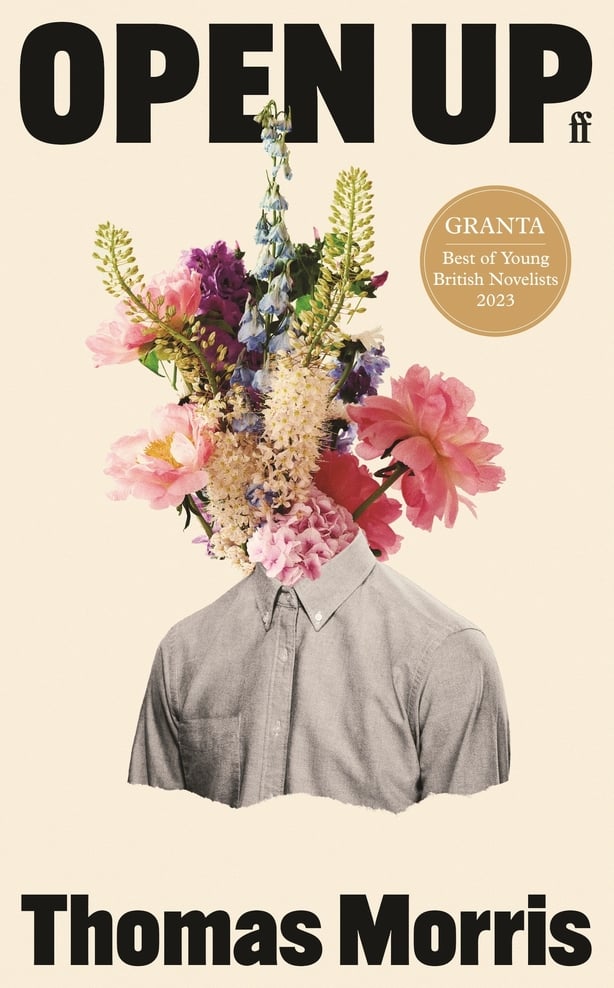Tackling issues of modern masculinity through the prism of childhood can be difficult. Even when handled competently, such a thing opens its author up to all kinds of accusations about the authenticity of the child's voice or the appropriation of innocence to disguise the author’s own biases. It’s almost as if we as readers are scared to acknowledge that children possess complex characteristics of their own. Perhaps there’s even a kind of uncanniness at work, where we recognise these figures’ experiences as childhood, just not in the ways that we have come to know through the rose-tinted glasses of our own nostalgia.
Thankfully, the first two stories in Tom Morris’ second collection Open Up navigate this terrain deftly. Not to be found here any of the cloying sentimentality of Jonathan Safran Foer’s Extremely Loud and Incredibly Close nor the irritating precociousness of Muriel Spark’s The Prime of Miss Jean Brodie. Rather, Morris imbues his children with something like wisdom; recalling instead the cool detachment of Frank O’Connor at his best, or the wry black humour of Patrick McCabe’s titular The Butcher Boy.
Open Up sits in the tradition of great Celtic storytelling—perhaps unsurprising given that its author was born and raised in Caerphilly, South Wales—and it seems, too, as though Morris has absorbed much from his adopted Irish home; a moral sensibility that is neither hectoring nor opaque. A feeling of lived experience which is rendered beautifully through the occasionally fantastical and narratively ambiguous.
In Aberkariad, Morris tackles notions of male responsibility, monogamy, romantic love, the nuclear family and parental duty through the scope of the modern fairytale. Narrated by a young seahorse preparing to leave home for his first mating season, Aberkariad feels at once classic and thoroughly unique; like one of Lafcadio Hearn’s Japanese folk-tales, filtered through Morris’ trademark blend of sparing imagery and touching characterisation: "I remember the great size of everything, and the feeling that I was small in the world but saw things as they actually were, and how I thought I could handle anything that came my way."
The lyrical spareness of his prose elicits only the purest empathy, and there is a sense always that in each of the stories every detail, every image, has had to earn its place in the overall narrative arc.
Elsewhere, Morris’ characters are decidedly more human. In Wales, a ten-year-old boy is taken by his father to a friendly football match between the Welsh national team and Northern Ireland. Coping with the looming repossession of his mother’s house by the bank and the traumatic legacy of his parents’ split, the boy invokes magical thinking and superstition as guards against the harsh realities of his dwindling childhood. Football stands in for religion, as he tell himself that all he needs for everything to work out is for Wales to win the match—a bigger task than expected, as he is informed by his father that on the night the Welsh team will be without their star players Aaron Ramsey and Gareth Bale.
Towards the end of the story, there is a sudden shift in perspective from the third-person past-tense to the second-person present; a sense that perhaps the higher agency that the boy’s character has subscribed to all along exists, just not in the entirely benevolent form he takes for granted. "The days are warming," Morris writes to the boy. "And Gareth, you can feel the change already, can’t you? That feeling is coming back, the belief that your life is forever on the cusp of magic."
As with Morris’ first collection We Don’t Know What We’re Doing, Open Up is riven with unexpected moments like these. The lyrical spareness of his prose elicits only the purest empathy, and there is a sense always that in each of the stories every detail, every image, has had to earn its place in the overall narrative arc. The result is that even the most intricate aspects of masculinity are dissected with care: be it the lifelong dynamic between fathers and sons, the banal cruelty of male friendships, or the blossoming of male sexuality, I believed everything Morris wrote here. Even, perhaps, that somewhere a family of seahorses with Welsh names are enduring existential crises.

Open Up is published by Faber


